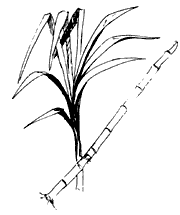I like that title. It is what I have been wanting to go back to from the moment on that I left Cairo. It brings to mind images of Che Guevara, the Bastille or other revolutions. But the Egyptians have their own way of remembering their communal achievement, the ousting of Hosni Mubarak as their president and starting a path towards a more democratic government.
Being back in Cairo one asks the question ‘what has changed?’. Obviously many things have changed since the revolution, but in the daily life the matter is slightly more complicated. I have met people who are not happy with the revolution. ‘Mubarak is a good man’ is what i get to hear sometimes. More down south (Upper Egypt) there is still a lot of support for him. In Cairo however, after all the main stage of the revolution, there is luckily a more positive spirit, but also frustration about the pace and contents of the reforms. To such an extent even that last week Friday a new ‘Day of Anger’ was called for, and indeed a hundred thousand people came to the famous Tahrir square to reassert their demands for a democratic country.
A hundred thousand people in Tahrir is a sight that was not seen ever since the Revolution, but the thrust of those days is gone. There is no common goal anymore to unite all Egyptians for one cause. The question now is how to implement changes. Every day new political parties are founded, and discussions about the Muslim Brotherhood and Salafis are popular, either in favour or in fear of both. And that is immediately the first big difference here in Cairo after the Revolution. Politics is very much ‘salonfähig” again. I don’t know if I can use that word in English, but it is exactly that. In cafés, on the street, in taxis, everywhere people talk about politics. That does not mean that people avoided the subject before the revolution, but it is a big difference talking about a inert regime, or about the many possibilities of the future.
Among my friends here there is an agreement that the Muslim Brotherhood (or worse: the ‘Salafis’) should not get a majority in the parliament, because it will mean a serious threat for their lifestyle. These friends are not representative for the whole of Egypt, but indeed were very active in the revolution and want to see changes they have been demonstrating for, and not a so-called step backwards. This fear is logic and nothing wrong with. But the question is, if you allow pure democratic elections, and the majority of the votes go to a party that wants to implement Islamic legislature (I am not saying that this will happen), then democracy is doing her work. Or not? Can people allow non-democratic movements to be elected through a democratic system?
Besides the obvious political changes here in Egypt, there are some more practical changes as well. The curfew is still in place, even though I have ‘defied’ it already many times. Admittedly, places tend to close down a bit before the curfew, giving you the opportunity to be home before the curfew officially starts. But other places don’t. The curfew is from 2am to 5am, so it doesn’t bother me too much. Either I go back home before 2 and have a good night sleep, or I extend my stay with friends just a few hours extra to catch the first metro at 6am. So the curfew is there, but not as strictly as during the revolution (3pm to 8am!).
Another change is the disappearance of metro station ‘Mubarak’. There is a new station however ‘Shuhadaa’, ‘Martyrs’. I think this is more than fair.
The last change is one that I will go deeper into the next blog. People are proud of their revolution, whether it brings what they want or not, and whether they have the patience to wait for it. Numerous stands around the city sell flags and memorabilia. Not only from the Egyptian revolution, but basically of all Arabic countries currently rising up to demand political changes. Next to that, all Egyptian singers came up with at least one revolutionary (or nationalistic) song. And last but not least, around the city beautiful portraits appeared of the people who had to give their lives for the revolution. Cairo remembers their martyrs in a beautiful way.
